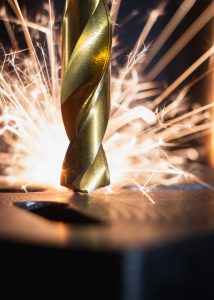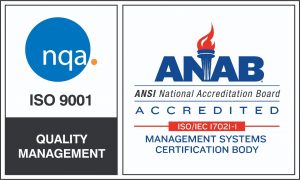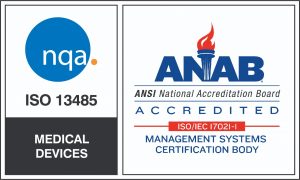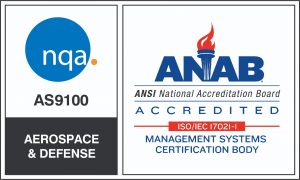 Computer-numerical control (CNC) machining is used for a wide range of projects. This trusted form of metal fabrication provides numerous benefits to businesses across a wide range of industries. From corporate executives to school children, we’ve all encountered devices created with the help of CNC machining. In fact, the creation of most modern-day devices involves this important type of machining.
Computer-numerical control (CNC) machining is used for a wide range of projects. This trusted form of metal fabrication provides numerous benefits to businesses across a wide range of industries. From corporate executives to school children, we’ve all encountered devices created with the help of CNC machining. In fact, the creation of most modern-day devices involves this important type of machining.
Business owners could gain a lot from learning about CNC machining and how it could benefit their business.
What is CNC Machining?
CNC machining uses computer-numerical control to operate machine parts like lathes, routers, grinders, shapers, mills, and more. Unlike other forms of machining, CNC machining does not require a human operator. Because the CNC machine operates under the control of a computer, CNC machining can produce precise and complex parts in very little time.
CNC Machining Benefits
CNC machining allows manufacturers to produce parts faster, reducing time to market and increasing the number of parts they can produce. Another benefit, CNC machining allows for the creation of consistent parts. This eliminates variances which are common with manual production.
Unlike human labor, CNC machines can work continuously This allows manufacturers to meet demanding deadlines. Once programmed, CNC machines only need to stop for occasional service. Although some additional maintenance may be required, most machines only need their cutting elements replaced during service.
CNC Machining Applications
Manufacturers use CNC machines to produce parts for multiple industries. CNC machining works with a broad range of materials including aluminum, stainless steel, carbon, titanium, brass, plastic, wood, gold, silver, and several synthetic materials. CNC machining makes fast work of many essential metal fabrication tasks including:
- Drilling
- Engraving
- Cutting
- Grooving
- Boring
- Contouring
- Lathing
- Milling
- Shearing
- Punching
- Shaping
- Stamping
- Facing
- Grinding
- Threading
- Texturing
- Welding
- Tapping
- Knurling
Multi-Axis Machining
Using multi-axis CNC machines, manufacturers can produce extremely complex parts and components from a solid piece of material. These machines provide additional benefits for organizations looking for precise and detailed components. Multi-axis machines are commonly used to create parts for the aerospace, medical, and defense industries.
Means Engineering provides contract manufacturing services to individuals, small businesses, start-ups, government agencies, and large corporations. Our 5-axis CNC machine allows us to create complex parts for a variety of applications. Please contact us for more information about our CNC machining capabilities.
 Contract manufacturing provides numerous benefits. Utilizing the help of an experienced contract manufacturer allows businesses to produce high quality products faster and at a lower price than producing them in-house. Contract manufacturing also helps large organizations fulfill periods of high demand.
Contract manufacturing provides numerous benefits. Utilizing the help of an experienced contract manufacturer allows businesses to produce high quality products faster and at a lower price than producing them in-house. Contract manufacturing also helps large organizations fulfill periods of high demand. Inventors come up with ideas at the strangest times. When this occurs, many worry they cannot develop their idea into a tangible product. While inventors may not have the tools needed to produce a fully functional prototype, they should attempt to work with someone that does.
Inventors come up with ideas at the strangest times. When this occurs, many worry they cannot develop their idea into a tangible product. While inventors may not have the tools needed to produce a fully functional prototype, they should attempt to work with someone that does. 2020 brought massive change for businesses in almost every industry. For manufacturers, the global pandemic had serious consequences for those that relied on parts and components produced overseas. As many businesses around the world halted operations, manufacturers in the U.S. found it difficult to continue their normal operations. Several OEMs utilized the help of U.S. based contract manufacturers to fulfill orders and keep up with demand.
2020 brought massive change for businesses in almost every industry. For manufacturers, the global pandemic had serious consequences for those that relied on parts and components produced overseas. As many businesses around the world halted operations, manufacturers in the U.S. found it difficult to continue their normal operations. Several OEMs utilized the help of U.S. based contract manufacturers to fulfill orders and keep up with demand. It’s not uncommon for American companies and OEMs to enlist the help of electronic contract manufacturers. Depending on the needs of the company that hires them, ECMs assist with design, production, and testing of a wide range of products. Larger companies often hire electronic contract manufacturers to help fulfill periods of high demand. Small companies, start-ups, and entrepreneurs may utilize an ECM for all parts of production or to launch a new product.
It’s not uncommon for American companies and OEMs to enlist the help of electronic contract manufacturers. Depending on the needs of the company that hires them, ECMs assist with design, production, and testing of a wide range of products. Larger companies often hire electronic contract manufacturers to help fulfill periods of high demand. Small companies, start-ups, and entrepreneurs may utilize an ECM for all parts of production or to launch a new product.

